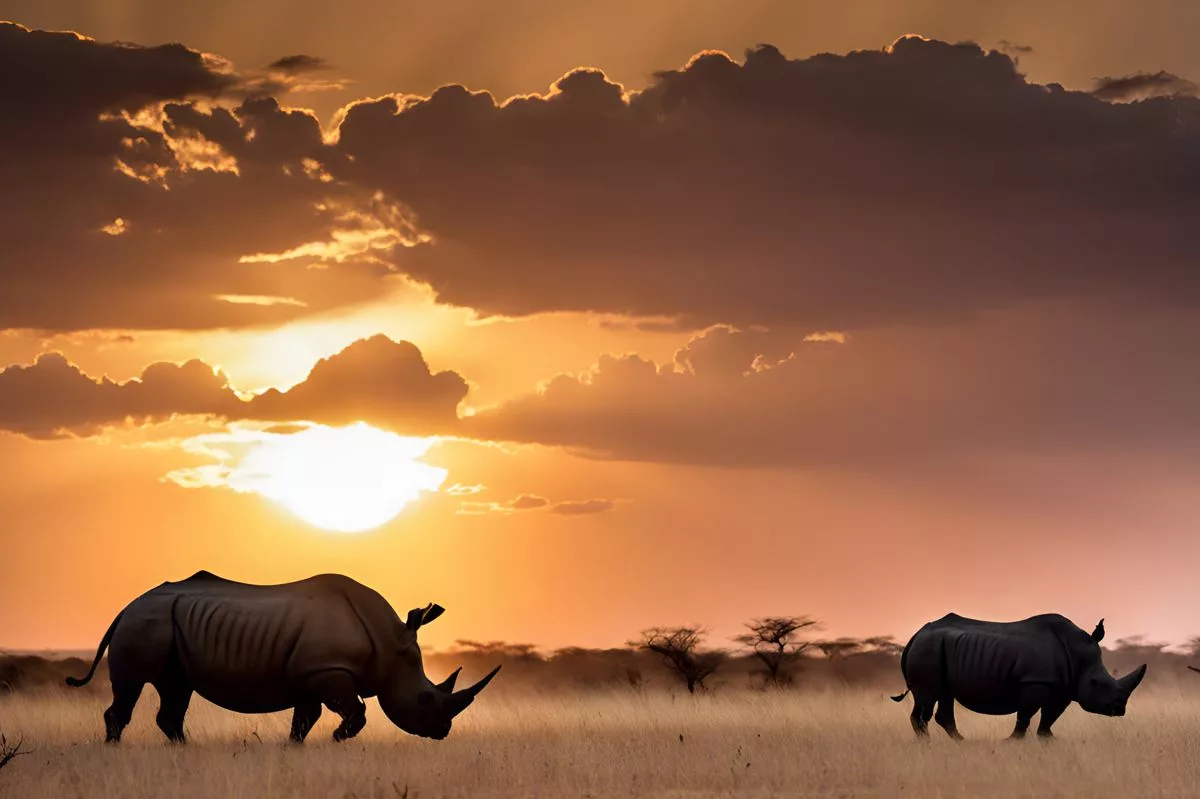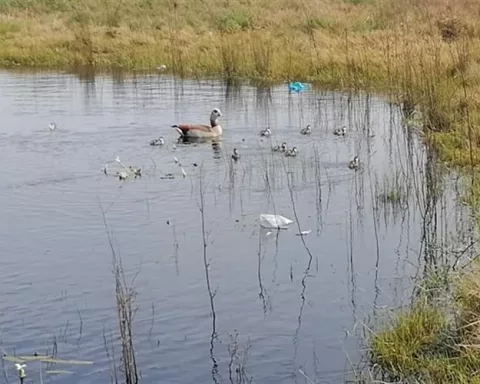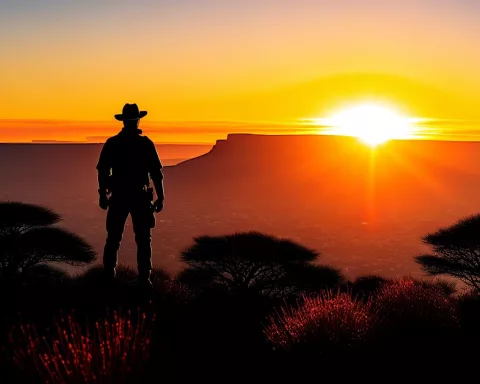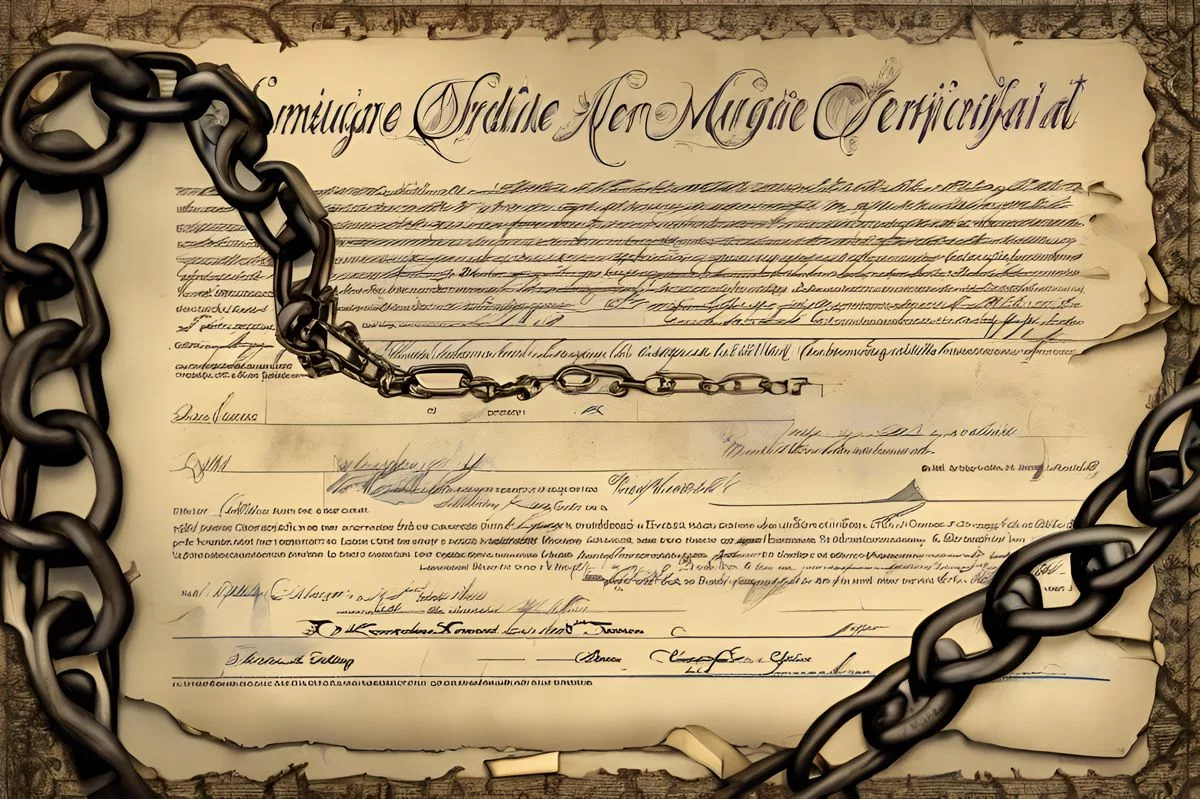In Kruger National Park, a big win against rhino poaching just happened. Two former rangers, Lucky Mkanzi and Joe Sihlangu, were sentenced to 20 years in prison for their roles in the illegal hunting of rhinos. This case shows how important teamwork is in fighting wildlife crime, as law enforcement worked hard to catch these betrayers. Their conviction sends a strong message that poaching will not be tolerated, reminding everyone to protect the beautiful animals in our world.
What was the significance of the recent rhino poaching conviction in Kruger National Park?
The conviction of two ex-rangers for rhino poaching in Kruger National Park marks a significant victory in the fight against wildlife crime. Sentenced to 20 years, this case highlights the collaboration of law enforcement and the ongoing commitment to conservation, sending a strong message to poachers and their backers.
A Landmark Conviction in Kruger National Park
In the heart of South Africa’s Kruger National Park, a saga of human greed and the triumph of justice unfolded. Narend Singh, the Deputy Minister of Forestry, Fisheries, and the Environment, lauded the Skukuza Regional Court for imposing a 20-year prison sentence on two ex-park rangers found guilty of rhino poaching. Singh’s endorsement highlighted a larger story of perseverance and teamwork among law enforcement agencies and the National Prosecuting Authority in the relentless battle against wildlife crime.
The tale begins with Lucky Mkanzi and Joe Sihlangu, once dependable custodians of Kruger National Park, who yielded to the temptation of illegal profit. Stationed in the Crocodile Bridge Section of the park, their betrayal struck at the heart of conservation efforts. In January 2019, an intelligence-led operation revealed their involvement in transporting poaching suspects within the Godleni area, where two white rhino carcasses were discovered by authorities.
Tracking devices in the rangers’ vehicles exposed their proximity to the crime scene, leading to their arrest. Their confessions further illuminated the dark underworld of poaching. A significant sum of R41,000 found in Joe Sihlangu’s quarters confirmed his involvement, shedding light on the corrupt nexus between greed and wildlife crime.
The Court Battle and Its Implications
As the trial began on September 4, 2024, at Skukuza Regional Court, the state presented a meticulously constructed case. Compelling evidence and thorough investigations led to the conviction of Mkanzi and Sihlangu on three counts: conspiracy to commit a crime, hunting a rhinoceros in a national park, and hunting and killing a rhinoceros in a national park. The court sentenced them to a total of 20 years in prison, with sentences for conspiracy and hunting running concurrently with that for killing.
These severe sentences send a firm message to poachers and their financial backers, showcasing the unwavering stance of South African authorities against wildlife crime. This case also adds depth to the historical context of conservation efforts in Africa. Since the colonial era, African nations have fought to protect their natural heritage from poaching and exploitation. While methods and strategies have evolved, the core objective remains unchanged: safeguarding nature from human greed.
Kruger National Park epitomizes this ongoing struggle. Established in 1926, it has faced numerous challenges, from habitat destruction to illegal hunting. This recent conviction marks a significant victory in an enduring war. The park, home to a significant population of the endangered white rhino, continues to be a focal point for both conservationists and poachers.
The Crisis Within: Rangers and the Economic Lure of Poaching
The involvement of rangers in poaching activities exposes a disturbing dimension of the crisis. Rangers, often celebrated as the unsung heroes of conservation, operate in perilous environments. Their duties place them at the frontline, confronting armed poachers and treacherous conditions. Their betrayal, therefore, constitutes not only a criminal act but also a profound breach of trust.
The financial incentives for poaching are substantial. Rhino horn, valued in traditional medicine and for ornamental purposes, fetches exorbitant prices on the black market. This allure often entices individuals to forsake their principles, risking severe legal consequences for financial gain. The recovered money in Sihlangu’s room starkly illustrates this point.
The collaborative efforts of law enforcement agencies and the National Prosecuting Authority, as emphasized by Deputy Minister Singh, are vital in combatting this multifaceted issue. These entities, through intelligence-sharing and coordinated operations, have managed to disrupt significant poaching networks. Their success in the Mkanzi and Sihlangu case stands as a testament to their diligence and offers a beacon of hope for ongoing conservation efforts.
Public Involvement and Socioeconomic Considerations
Public involvement also plays a crucial role in this battle. Authorities urge citizens to report suspicious activities around wildlife to the environmental crime hotline or the South African Police Service. Community engagement and vigilance can greatly enhance law enforcement efforts, fostering a culture of collective responsibility towards wildlife protection.
The sentencing of Mkanzi and Sihlangu marks a pivotal point in the fight against poaching. However, it also opens a broader dialogue on the socioeconomic conditions driving individuals towards such crimes. Addressing these underlying issues requires a holistic approach, encompassing stricter law enforcement, community education, and economic development initiatives.
The arts and literature often reflect society’s struggles and triumphs, and this case is no exception. Artists and writers have long depicted the majesty of African wildlife and the tragedies of poaching. From Ernest Hemingway’s “Green Hills of Africa” to contemporary visual artists, the narrative of conservation continues to inspire and provoke thought.
Empowering Local Communities for Conservation
Particularly significant is the role of local communities in conservation efforts. Empowering these communities through education and sustainable economic opportunities can create local stewards of wildlife. This approach, aligning with historical and current conservation philosophies, underscores the importance of grassroots involvement in preserving natural heritage.
In conclusion, the conviction of the two former rangers serves as a potent reminder of the consequences of wildlife crime. It underlines the importance of integrity and accountability in the conservation sector. Most importantly, it reflects a unified commitment to protecting South Africa’s natural treasures for future generations. Narend Singh’s commendation encapsulates this resolve, heralding a new chapter in the enduring saga of wildlife conservation.
FAQ about Rhino Poaching Conviction in Kruger National Park
What happened in the recent rhino poaching conviction in Kruger National Park?
The Skukuza Regional Court sentenced two former rangers, Lucky Mkanzi and Joe Sihlangu, to 20 years in prison for their involvement in rhino poaching. Their conviction highlights the importance of teamwork among law enforcement in combating wildlife crime.
Why is this conviction significant for wildlife conservation?
This conviction serves as a landmark victory in the fight against poaching, sending a clear message that wildlife crime will not be tolerated. It demonstrates the commitment of South African authorities to protect endangered species, particularly the white rhino, which is a focal point in conservation efforts.
What evidence led to the conviction of the former rangers?
The case against Mkanzi and Sihlangu was built on strong evidence, including tracking devices in their vehicles that placed them near the crime scene, their confessions, and a significant amount of cash found during the investigation. These factors confirmed their involvement in the illegal hunting activities.
How does this case reflect broader issues in wildlife conservation?
The involvement of rangers in poaching activities highlights the economic pressures and moral dilemmas faced by individuals in perilous conservation roles. It sheds light on the need for a holistic approach to combat poaching, addressing the socioeconomic factors that drive people to engage in such crimes.
What role does public involvement play in combating wildlife crime?
Public involvement is crucial in the fight against poaching. Authorities encourage citizens to report suspicious activities to law enforcement. Community engagement fosters a culture of collective responsibility towards wildlife protection and can significantly enhance conservation efforts.
How can local communities contribute to conservation efforts?
Empowering local communities through education and sustainable economic opportunities can create committed stewards of wildlife. This grassroots involvement is vital for long-term conservation success and aligns with historical and contemporary conservation philosophies aimed at protecting natural heritage.












